How Rep. Jackie Speier Survived
Jonestown and Devoted Her
Life to Public Service
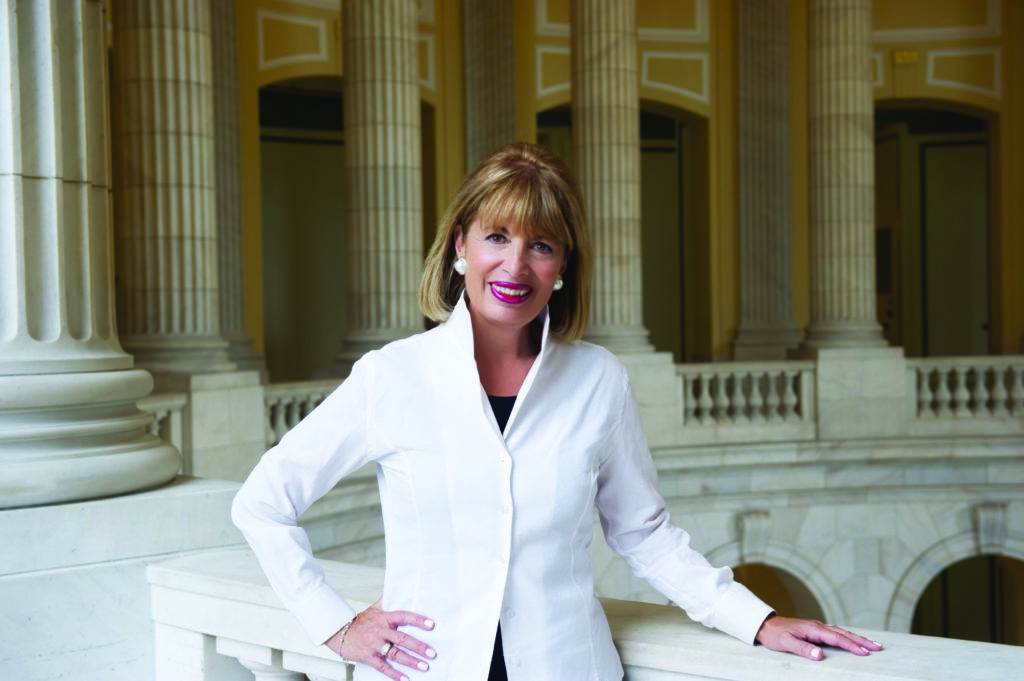
Born into a modest blue-collar immigrant family in San Francisco’s Sunset District in 1950, Jackie Speier strongly considered entering a convent before choosing to become a lawyer, and served as legislative counsel to Representative Leo Ryan. On November 18, 1978, she joined a fact-finding mission (that the State Department deemed safe) to explore constituent concerns about relatives involved with Jim Jones’s People’s Temple in Jonestown, Guyana. In the events leading up to the infamous cyanide-laced Kool-Aid mass murder of 918 people (the largest massacre of American citizens before 9/11), Ryan and Speier, after visiting the compound, were ambushed at the nearby jungle airstrip. Ryan died, struck by 45 bullets. Speier was shot five times. In great pain, she pretended to be dead until the gunmen left, then waited for 22 hours before receiving medical attention. She conceded to death—but death didn’t come. It was then she made a vow that if she survived she would dedicate her life to public service.
With four bullets still in her body, Speier currently serves as House Representative of the 14th District, which includes parts of San Francisco and San Mateo counties—the same seat once held by Ryan. Determined to fulfill her tarmac vow, Speier has gone on to become a courageous legislative champion of underdogs, notably on issues of women’s rights, LGBT, wage discrimination, sexual harassment, worker safety, veterans’ benefits, gun reform, and much more. She serves on two prestigious House Committees (Intelligence and Armed Services) and has lately been in the headlines as a key participant in the presidential impeachment hearings.
Her autobiography, Undaunted, tells the story of a devout Catholic’s rare gift of faith and resilience in the face of an unusual series of life hurdles. We caught up with the tireless congresswoman late one evening as she was wrapping Christmas gifts before boarding a plane back to Washington D.C.
Common Ground: How do you embody Undaunted, particularly in light of the impeachment hearings in Washington?
I think you can never give up. Whether we feel that there’s going to be a conviction in the Senate is really not relevant to our process in the House. Historically, I’ve seen things change overnight. I feel very strongly that the president has committed a high crime and misdemeanor and bribery. We would be totally irresponsible if we let him get away with it. Because if he does gets away with this, then any president who follows can get away with anything. He said, “I can do anything I want under Article 2 of the Constitution.” If allowed, this creates an autocracy within a couple years.
From a viewer perspective it feels like civil war in terms of the divisiveness. Can you put readers in the front row as to what the vibe is like in the House now?
No, it’s actually not. Most of what you hear as divisiveness is the Republicans playing to an audience of one. They’re trying to get their gold stars so Trump will help them get reelected. It’s all about self-preservation.
How do you respond to detractors who accuse Democrats of staging a witch hunt?
It’s hard for me to take that seriously when this was the result of a whistleblower complaint that has been fully corroborated by the president’s release of the summary of his phone call with [Ukrainian president] Zelensky. All the testimony we’ve heard since only corroborates it more and has added new elements in terms of his unwillingness to release the [foreign aid] money, which impacts our national security. If Russia is successful in taking over the Donbass region of Ukraine, that’s the beginning of World War III in Europe.
How did your childhood and family life teach you about grit?
I grew up on Irving in the Inner Sunset and then in South San Francisco and eventually went to Burlingame for high school. My parents were very blue collar. We had a fairly austere childhood. There weren’t a lot of perks and extras. I learned grit by having parents that weren’t softies. They were disciplinarians, tough on us. With my own kids I sometimes fail at being so tough. [laughs] Maybe I didn’t want them to turn out as tough as me.
Did you have a happy childhood?
Yes. I mean here I am wrapping Christmas presents and it’s kind of funny because in our household we didn’t make Christmas lists. You just got whatever you got. [laughs] One year I got a dented suitcase! That was my Christmas gift! It was modest. We went on only three vacations during my entire childhood. One was to the World’s Fair in Seattle. One was to Tijuana and Ensenada, the other to Yosemite. We didn’t stay in hotels. We stayed in a camper.
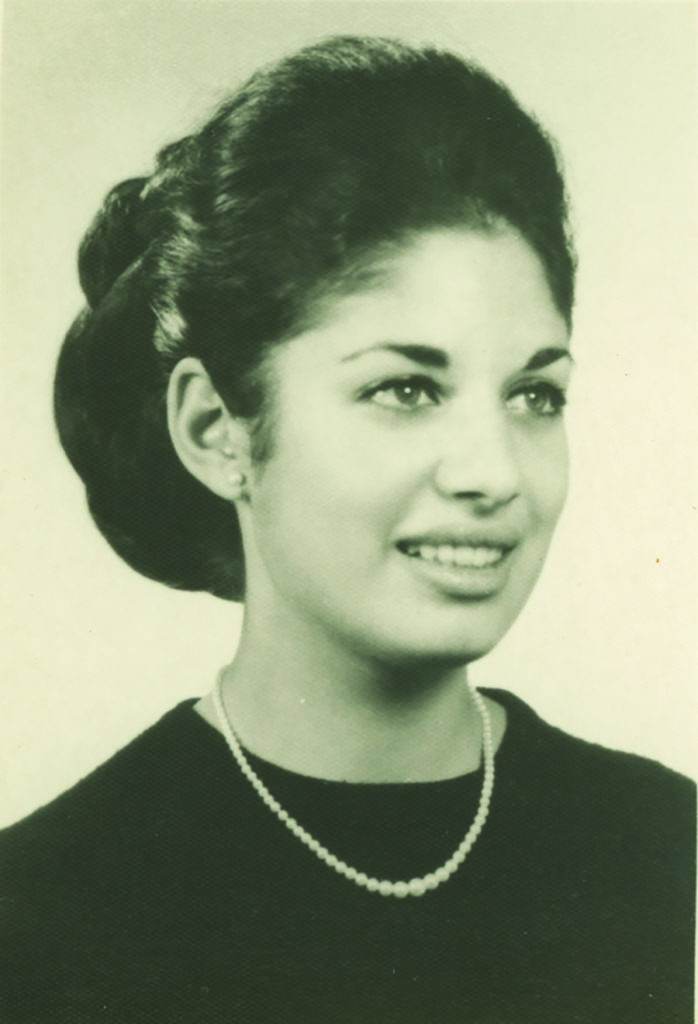
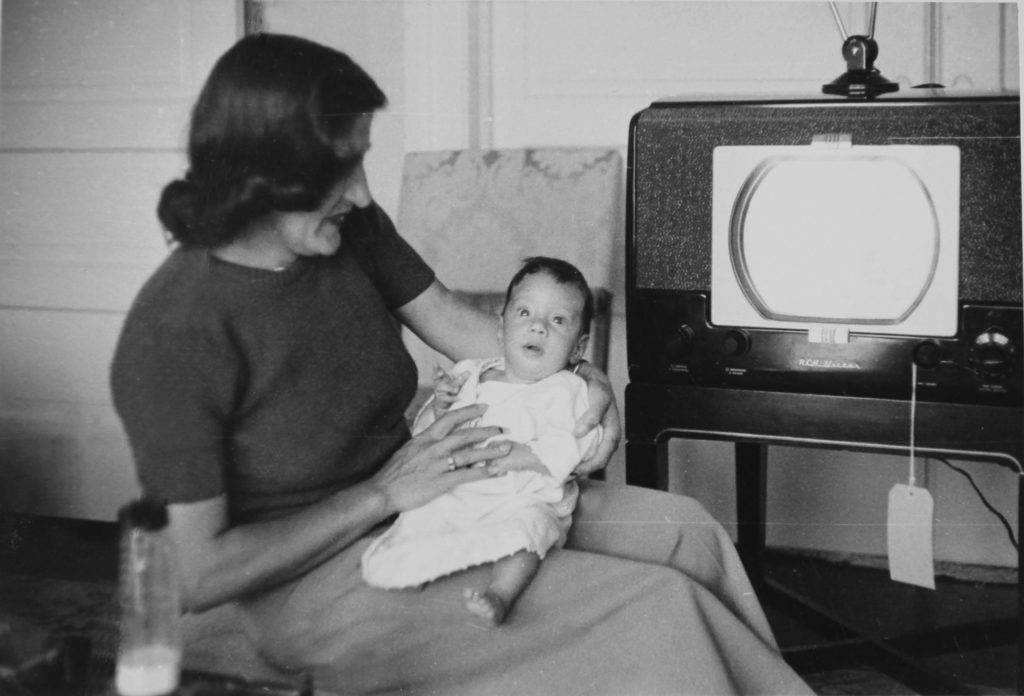
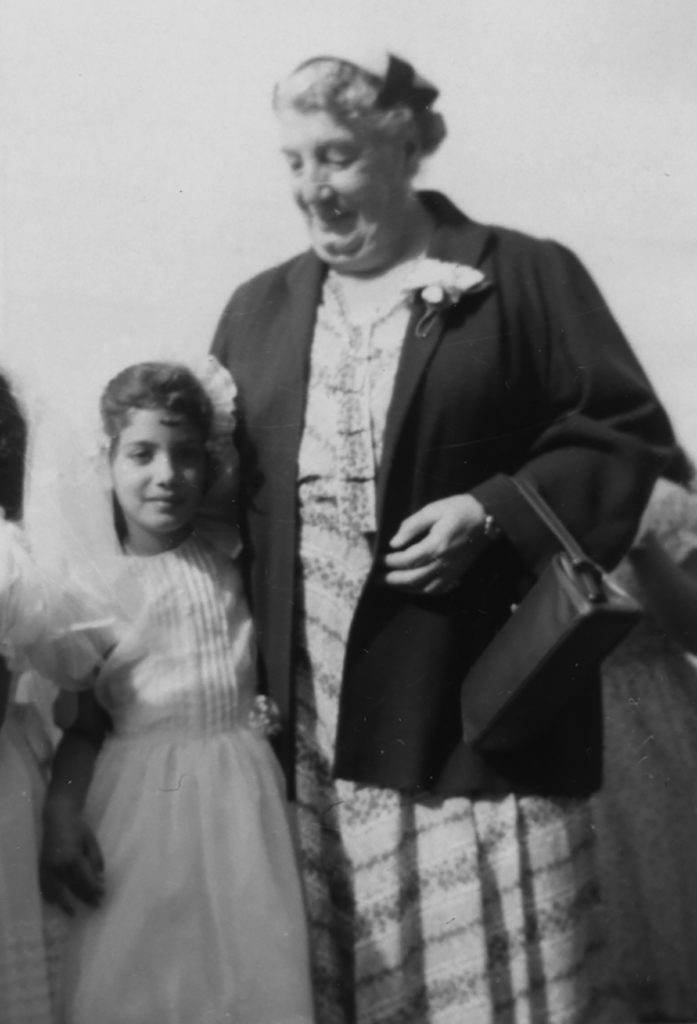
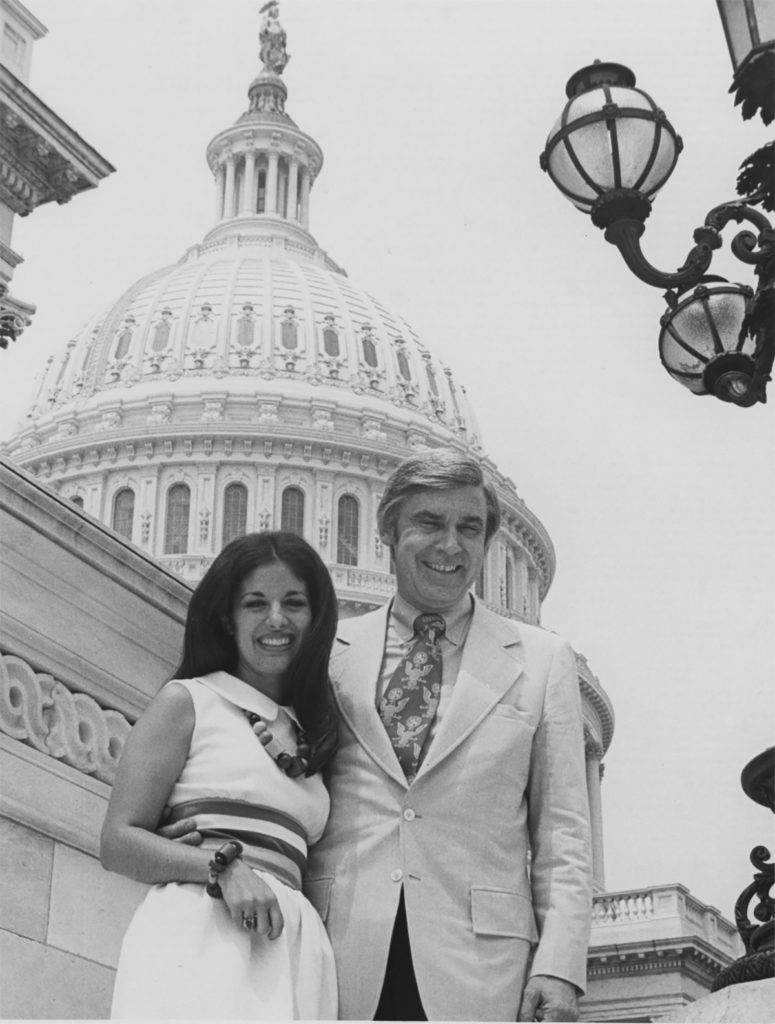
You occupy the same House seat that Leo Ryan did more than 40 years ago. What kind of man was he?
He was an iconoclastic kind of guy. Some might describe him as a bit of a loner. I used to say, “He eats bureaucrats for lunch.” He believed in what I call experiential legislating. He wasn’t content to have a bureaucrat say, “This is how it is.” He wanted to find out for himself. Early in his career, after the Watts riots, he went down there as a substitute teacher. He spent a week at Folsom prison. He went up to the ice floes in Newfoundland and Labrador during the harp seal hunts. He was quite unique and put his constituents first.
What compelled him to investigate Jonestown?
He had constituents with young adult children that had gotten involved in the People’s Temple. They formed a group called the Concerned Relatives, complaining that their letters weren’t getting through to their children. Congressman Ryan did what his other colleagues representing constituents in San Francisco didn’t do because they were too reliant on Jim Jones, who had the ability to rally 2,000 people if a precinct walk was needed. In many
respects Jim Jones was credited with helping George Moscone get elected and then helping him successfully repel a recall election.
What were you expecting when you went to Guyana?
I was very nervous about the trip even though the State Department was telling us that everything was great—that we had nothing to worry about. I had listened to all of the interviews and I just felt that we didn’t know enough. I really feared. I was about to buy a condominium in Arlington, Virginia, but I literally put a clause in the contract saying that it was contingent on my surviving the trip because I didn’t want my parents to be saddled with a property 3,000 miles away.
I even wrote a note to my parents that I left in my desk drawer saying that if anything happened to me I wanted them to know that I loved them, that my life had been great. And by the way I had a thousand-dollar life insurance policy at the credit union. [laughs] Kind of funny, thinking back on it. So I had a premonition, but I also felt that if I didn’t go I was going to discourage women from being successful in staff leadership positions in Congress because there were very few at that point.
The Jonestown story is spellbinding. Do you mind sharing how you wound up getting shot five times and left for dead?
It was a very intense experience. When we got there we started interviewing many of the constituents, the children of constituents. I had brought all these letters that I wanted to hand deliver. The people we interviewed seemed to be subject to mind control because they all repeated the same thing to me. We weren’t getting very far and then toward the end of the evening Don Harris, who was the NBC reporter, hands us a note with the names of two members who wanted to get out. My heart sank because I thought, “Oh, my God, this is it. It really is true.”
I spent the night in a cabin with five members of the People’s Temple. They were rugged cabins with tin roofs. It rained all night so I was just hearing this pelting sound and couldn’t sleep. Then the next morning Congressman Ryan and I retrieved the one woman and young man who openly wanted to leave. As they got their belongings word spread that some people were leaving. Then more and more people wanted to leave. It got very, very tense. The tension was so high. Jones was complaining and scolding the defectors. We finally got out and I thought we’d dodged a really potentially risky situation. As it turned out we went to the airstrip where I’m loading passengers onto the plane and unbeknownst to us a tractor trailer with seven gunmen had followed behind us at some distance. They had come onto the airstrip. I had my back to them so I didn’t see what was happening.
They started shooting.
Congressman Ryan was shot and I turned and as I was trying to go toward him he got shot again and dropped. So I ran under the plane and hid behind one of the wheels—and then played dead. Then at some point they came and just started shooting at point-blank range. Congressman Ryan was shot 45 times. They riddled his body with bullets. I had been shot five times.
I’m lying on this airstrip, and I thought, “Oh, my God, this is it. I’m 28 years old, I’m never going to live a long life, get married, have kids. This is it.” So I said the Act of Contrition [the Catholic prayer expressing sorrow for sin and asking for God’s help] and waited for the lights to go out. And when they didn’t I had this vision of my grandmother who was then 87 flash in front
of me. I thought, “I just don’t want her to have to live through my funeral if I can avoid it.” So I pulled myself up at some point, dragged myself around the plane because the engines were still running, and someone shoved me in the cargo hold. Obviously the plane wasn’t going anywhere because it had bullet holes in the engine and one of the tires.
Eventually they took me out and placed me in a tent on the side of the airstrip—unfortunately on an anthill. [laughs] But as I’ve said many times since, “You don’t sweat the small stuff when you’re dying.” I was on the airstrip for 22 hours without medical attention and thought I was going to perish—either they were going to come back and finish us off or I would die there. It was a painful time. The NBC producers Bob Flick and Tim Reiterman eventually came to the tent with some 150 proof Guyanese rum and got me through the night. I promised myself that if I did survive I’d never take another day for granted and would live every day as fully as
possible and dedicate my life to public service. And that’s what I’ve done.
For those who don’t know the story, can you explain what ensued that day back at Jonestown?
So in the middle of the night, even though there were no cellphones back then, word came through the jungle that the White Night trials that they had rehearsed many times had actually been done for real, and that people
had died. I remember lying there thinking of all these people I had met—including a group of about 40 that wanted to leave.
How many died
918. They refer to it as a mass suicide, which it wasn’t. It was Jim Jones executing all of them by force or persuasion. Babies and children were injected with the cyanide. They didn’t drink the cyanide Kool-Aid.
Drink the Kool-Aid—that’s a loaded expression for you.
Yeah. I’m not fond of it although I’ve used it once or twice myself.
This makes you something of a de facto expert on cults and cult behavior.
Not by choice, obviously. I wouldn’t say I’m an expert, but I certainly observed it up close and personal.
We live in the Bay Area, which is known for its counterculture and alternative spirituality. After Jonestown have you been particularly cynical?
People’s Temple was not a church, it was not a religion, yet they got all the protections that we give to churches under the First Amendment. I think the fact that Jones was able to cloak himself with a religious cape made some look the other way. There were a lot of political reasons why people and local law enforcement looked the other way. Illegal conduct, whether it’s pedophilia under the cross in the Catholic Church or the kind of sexual and physical abuse that Jim Jones engaged in—none of it is above the law.
What physical handicaps do you endure as a result of getting shot and what reminder do they provide?
I have a badly scarred body so that’s obviously a reminder, although I must say after 40 years it’s just part of who I am. I think that it’s really important for us to accept who we are and embrace it. It took me a long while to deal with that but eventually I asked myself, “Am I going to hide the rest of my life or live it?” One day I was on a beach in Hawaii, totally covered, and I thought, “It’s time.” I threw down the sarong and walked across the beach. Some people stared but most people don’t care. It was a very empowering moment.
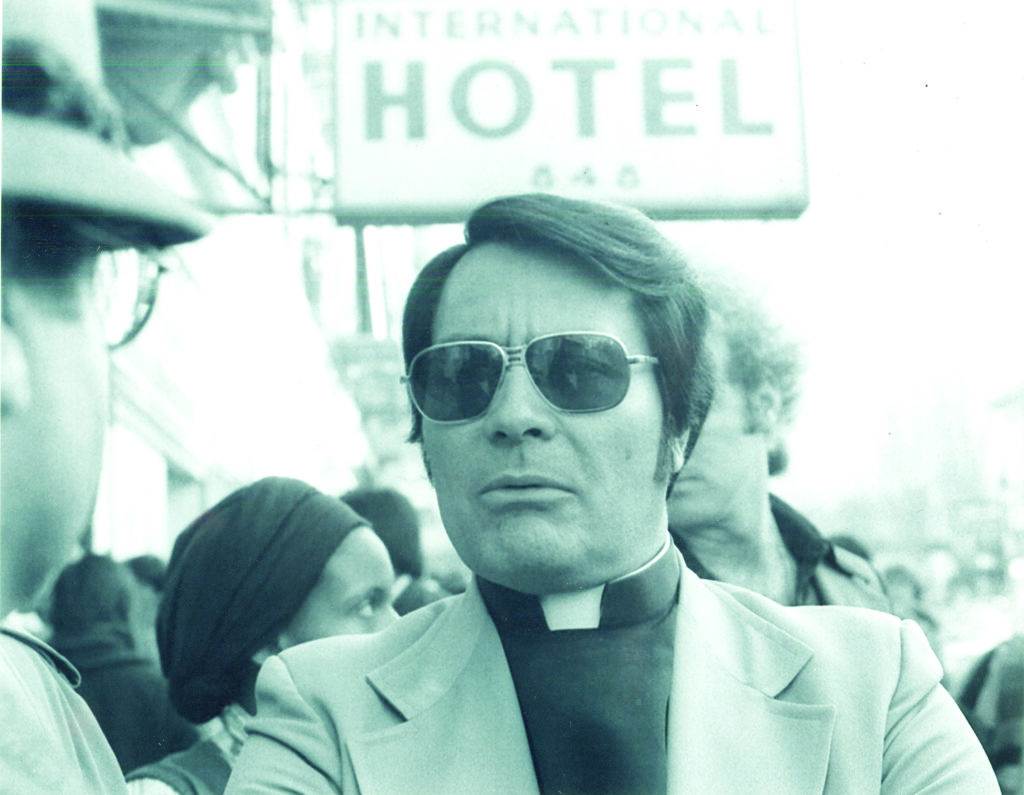
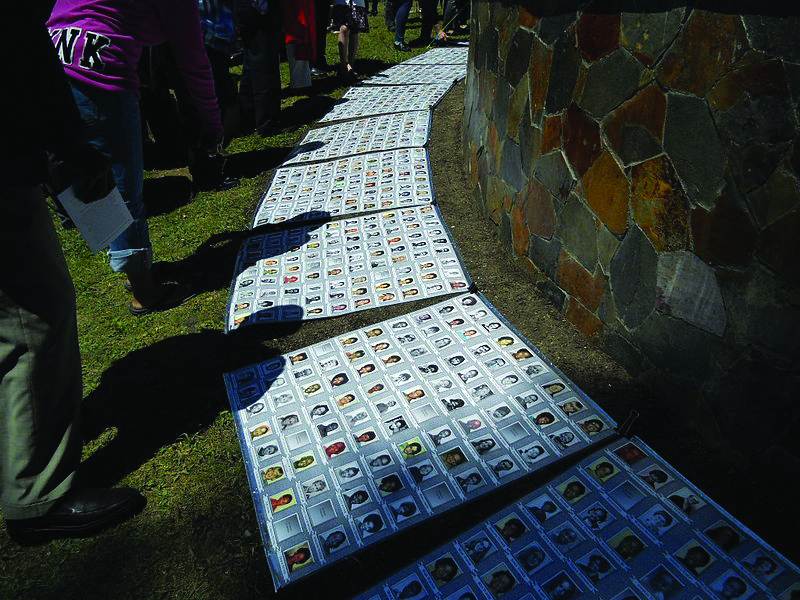
Gun control has always been a very personal issue for you. Would you contextualize what’s going on in DC in this regard?
You mean what’s not going on? It’s really criminal that the National Rifle Association still has as much clout as it does and that simple bills like comprehensive background checks can’t get passed. I think the day of reckoning is coming. I think there’s going to come a time in the not too distant future when the sane people in this country rise up and say, “This is crazy.” Then we’ll get some laws on the books. Why would we want to give a felon or domestic violence abuser the right to buy a gun online and not be -subject to the check that would prevent them from getting the gun if they went to a licensed gun dealer?
As a legislator you’re known as a champion of the underdog, defending women’s rights, LGBT rights, victims of wage discrimination, survivors of sexual misconduct in the military—the list goes on. Can you talk about the causes and reforms that are dear to you?
This just happened. It will be in the National Defense Authorization Act this year and it’s why I do the work I do. Earlier this year a 14-year Green Beret named Richard Stayskal came and saw me, as I chair the Military Personnel subcommittee of the House Armed Services Committee. He had gone to a military base hospital with a horrible cough that wasn’t going away. They took a CAT scan and found he had a lesion—but they didn’t tell him! They made note of it and said he’d be referred to oncology—but nothing happened. Six months later he comes back coughing blood, asking to see a physician not on base. He immediately discovered he’s got stage 4 lung cancer. There is this 70-year-old Supreme Court decision called the Feres Doctrine that basically prevents service members from suing the government in a non-combat situation. Now, it makes sense under certain circumstances, but it doesn’t make sense for medical malpractice.
An inmate in a federal prison who gets bad healthcare can sue the federal government, but a service member can’t! So I introduced a bill to change that and it just won a court decision. So in the National Defense Authorization Act, $400 million will be made available over ten years for medical malpractice for service members who are not in theater, who are in a non-combat setting. I named the bill after Richard, and I can’t tell you how thrilling it was to call him to say his family will be cared for. This was a case that simply set off what I call my “outrage meter” so I did something.
There are so many, but what else would you like to highlight?
Reproductive health is an area I’ve spent a lot of time on since I was in the state legislature. When second trimester abortion became a huge issue, I talked on the House floor about one of my pregnancies and my abortion. This gave women around the country the ability to recognize that it’s nothing to be ashamed about. I mean if it threatens the mother’s life and the fetus isn’t going to be viable outside the womb, it’s an appropriate medical procedure—a decision that should be made between a woman and her physician and not government legislating in our wombs.
Sexual harassment and MeToo-style legislation is another one, no? Weren’t you personally a victim of sexual misconduct?
I was but it happened once. It wasn’t like so many of these situations where you have a woman who is constantly being harassed. The typical setting is where you have one person in control and others dependent on them—with
their livelihoods impacted. I did a lot of legislation on violence against women when I was in the state legislature and I got the Rules Committee to require a sexual harassment training every year for members of the state legislature.
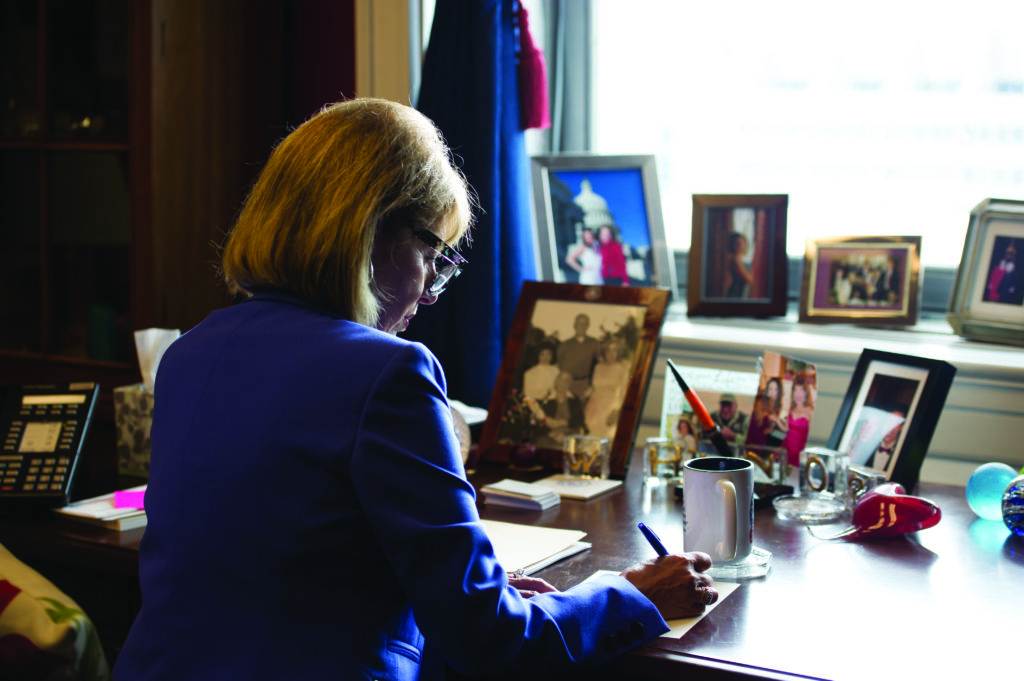
When the MeToo movement took off I thought, “This is an opportunity to try to fix the system.” Now if a Congressmember sexually harasses a staff member and there’s a settlement it’s not going to be the taxpayers picking
up the tab—it’s going to be the member. I am glad we were able to change the law in Congress. [laughs] It may be the best way for them to keep their zippers zipped.
[laughs] You’ve surely seen some interesting things in your career.
I have, that’s for sure.
Your book mentions a paternal grandfather having molested you. Are you comfortable talking about that?
I almost didn’t write about that because I had done a really good job compartmentalizing it. Later as I was trying to understand why I spent
so much of my career on issues around violence against women it finally clicked—it was because my grandfather had abused me.
I just didn’t want to have women treated like that. I decided to write about it for two reasons. Part of the problem is that it’s much more widespread than we talk about—20 percent of children are sexually violated by a family member. And then I decided this would not become another issue I hid from—another example of how we can overcome a lot.
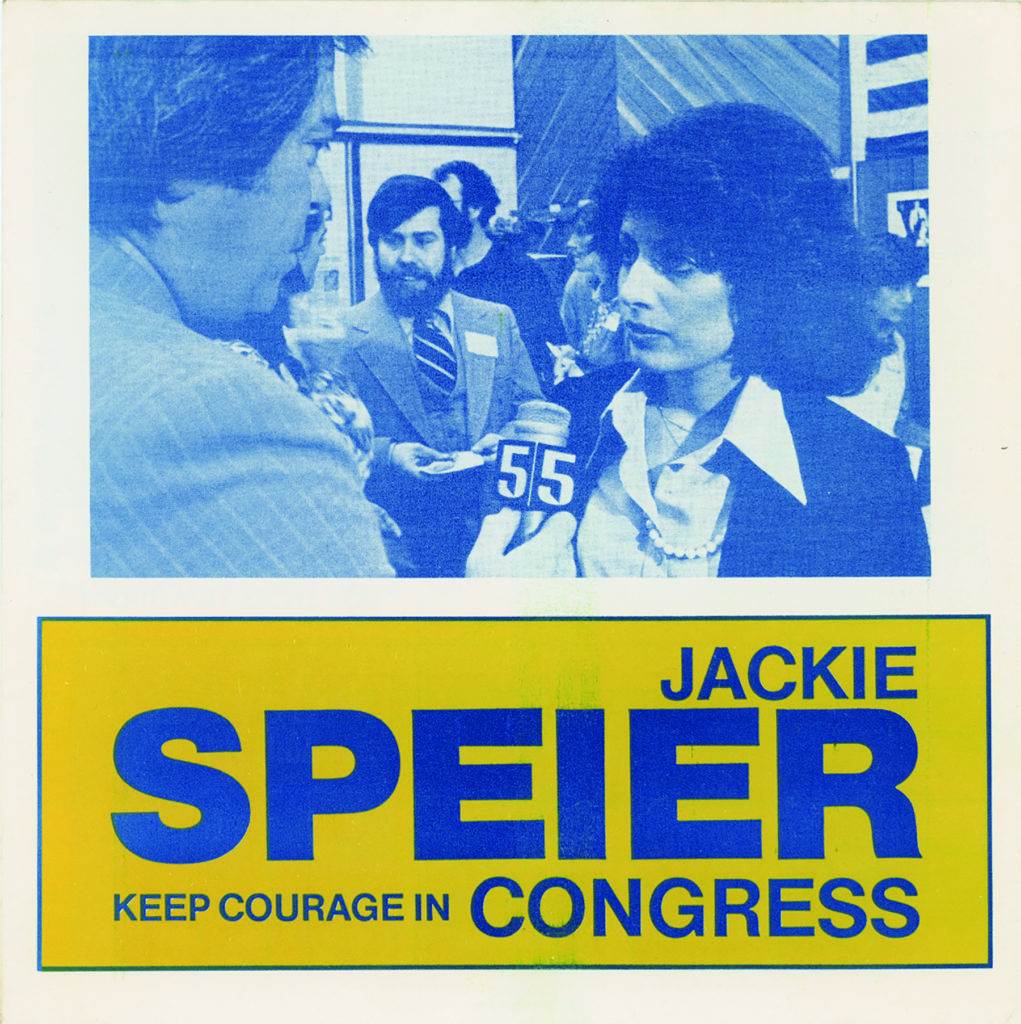
It is said that politicians are either totally corrupt or squeaky clean. You’ve a rare reputation for being fastidious. I’m wondering how you witness corruption in politics.
Actually, I think most members are squeaky clean. Because you have a Duncan Hunter or a Chris Smith then there’s this expectation that they are all on the take. Donald Trump is on the take, using the position and office to benefit personally.
I witness corruption when I hear members say, “I really want to vote for that but I can’t because of what they’ll do to me in my district.” So many times I have seen circumstances where a member is basically bought off for a couple thousand contribution dollars. It’s pathetic.
When I was dealing with the issue of payday lenders and the predatory interest rates they charge—like 400 percent! How you can ever get out from under those circumstances? They prey on people in low-income areas—there were two Congressmen representing low income areas who wouldn’t vote to lower the interest rates because they had gotten money from payday lenders. But most members aren’t subject to that kind of corruption. Of course, we’d all do a much better job if we just went to public financing of elections.
What kind of political leadership do you predict for our children’s generation?
There were a lot of very talented newly elected Millennials in 2018. I’m very optimistic they’ll tackle issues we can’t seem to deal with, like gun violence, gun safety measures, and climate change. I think we have to get rid of the Electoral College. We should limit the length of time that you can run for an office. And we really have to have public financing of campaigns. We have a Supreme Court decision that now gives gay couples the ability to marry, but if you tried to pass that in the House right now you couldn’t.
After you survived Jonestown, life retested you with a series of personal tragedies. Can you describe those?
Everyone focuses on Jonestown because it was so dramatic, but the biggest test of my life was when my husband was killed in an automobile accident. I was pregnant with our second child, a high-risk pregnancy. I had thought
I never would get pregnant again, and I did. Then my husband gets killed! It was the most grotesque nightmare. I couldn’t fathom what was happening to me.
Shaking your fists at the heavens saying, “God, I can’t take this anymore.”
I thought, “Why are you doing this to me? Why am I being tested?” Everyone goes through those kinds of experiences and then something
wonderful happens. You know, there’s always another day. What got me through is the three Fs: family, friends, faith.
Let’s talk about those, starting with family.
I would not have made it through that crisis without family and without friends and without faith. My family has always been there for me. Now both my parents are dead, but they were absolute rocks and I could always count on them. I want to pay it forward and be that for my children as well.
You have lifelong friendships with women that you’ve cherished over the decades, including a group known as “the yoga girls.” What can you teach young women about friendship?
It doesn’t just happen by having a Starbucks or two. It’s like tending a garden. You have to till the soil, pull the weeds. You can’t ignore it. You have to constantly be tending it, watering it, adding fertilizer. That’s true with friendships too.
For me it was important to stay grounded and not forget my roots. That was measured by whether the friends I had before I got into politics were still my friends throughout my life. I’ve friends from long before I was in politics, friends I’ve acquired through trauma, such as the Merry Widows Club, the Yoga Girls. They’re extraordinary sources of support if you are willing to put in the time and effort—the value redeemed is priceless.
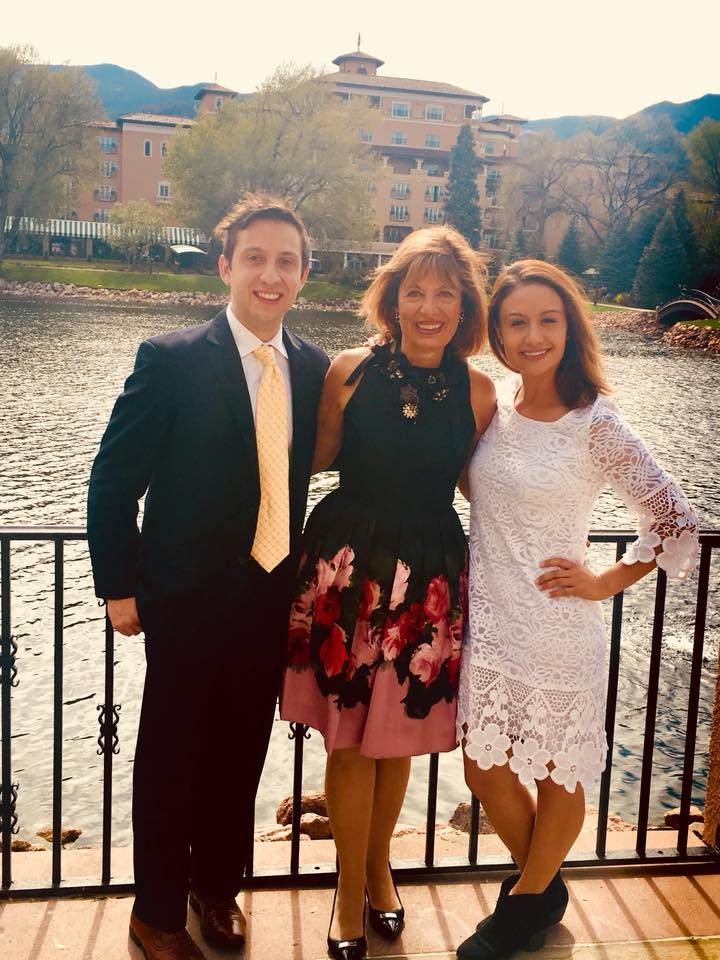
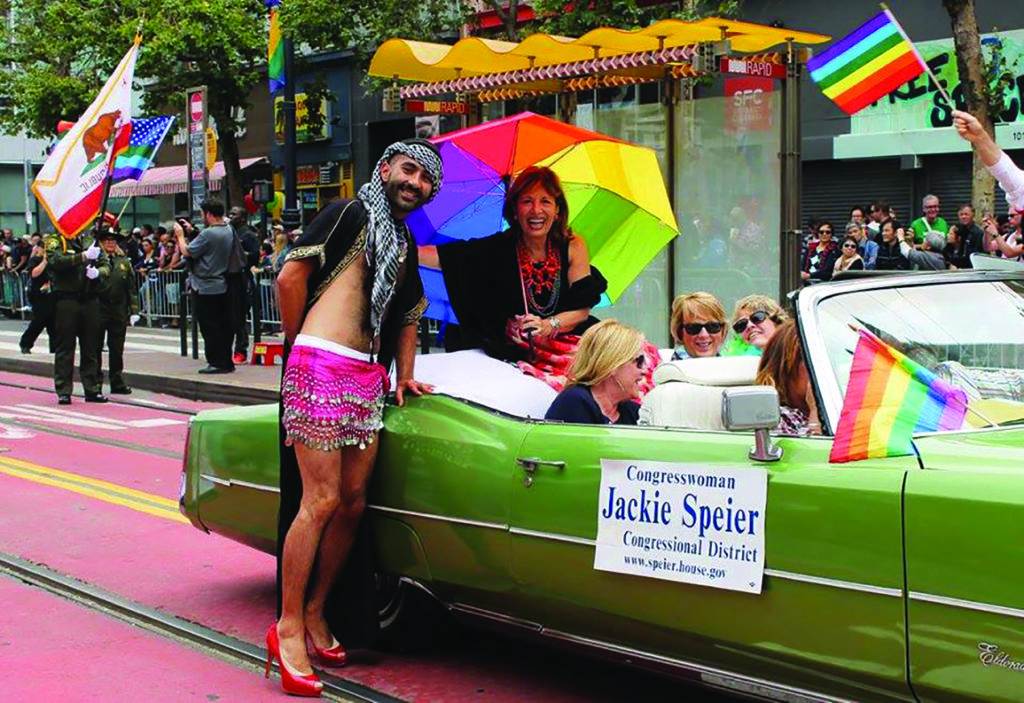
I picture your Bay women friends in Congress fist bumping in the halls—Nancy [Pelosi], Anna [Eshoo], Dianne [Feinstein], Kamala [Harris], Barbara [Lee], Zoe [Lofgren]. It must be exciting.
It’s not what you think, actually. I mean we’re all really busy and we’re all supportive of each other, but it’s not like that. I do spend time with Anna. We’ll celebrate her birthday next weekend at our house. Mike Thompson and I are very close. I’m certainly good friends with all the members from Northern California in particular, but everyone is so busy when they’re back in DC that it’s frankly hard to find the time.
I presume the opposite is true, that Trump supporters despise you. Isn’t there a group called Women Who Support Trump?
Oh, I don’t know. I don’t read bots and I don’t read my Twitter account very much. My staff could tell you there are people out there who are not fond of me but that goes with the territory.
What’s the vibe between opposing members on the Intelligence Committee? How do you get along with Devin Nunes, for example?
He’s not a good example because he’s so polarizing and so pugnacious. The more outrageous his comments the more campaign contributions he receives. So he is motivated by a strange set of principles. I have warm relationships with a number of Republican colleagues—not so much on HPSCI [House Permanent Select Committee on Intelligence] because it’s become a very difficult committee.
But for the MeToo Congress Act that passed I give 50 percent of the credit to my very conservative Republican colleague from Alabama, Bradley Byrne. We worked very closely.
Can you talk about how faith has played a role in your life?
I’m a devout Catholic. I go to Mass every Sunday. I’m a lector at my parish. As a youngster I would go to Mass on Sunday even when my parents didn’t. I was so proud that I had a missal before I was technically old enough to have one. I was just born with this faith. It’s been an extraordinary gift and not everyone has it but I’ve been very lucky.
What about it hooks you so sweetly?
I don’t know. I went to a Catholic girls’ high school by choice, not by parental pressure. It was something I wanted. I contemplated becoming a nun, spent a weekend at the convent. It really fills my soul and my heart. I’m always grateful for that hour I spend every week just contemplating goodness and trying to reflect on the past week and how I could’ve been a better Christian—and [laughs] perhaps looked at some of my opponents differently than I did.
The Catholic Church has been rocked by sex scandals. Have these shaken your faith at all?
I can’t begin to tell you how pained I am by it, but it also speaks to a church that hasn’t kept up with the 20th and 21st centuries. I think priests should be able to marry. I think women should be able to be priests. But my faith is stronger than what a particular man who happens to be a pope says about Catholic dogma. That said, Pope Francis has been a breath of fresh air. He inspired me actually to go spend the night in a homeless shelter as he too did that after becoming pope. I thought, “If the pope can do that I certainly can.” I learned a great deal.
You practice yoga. I’m wondering if you’re equally drawn to its Eastern spiritual philosophy?
I’d like to learn more about Eastern philosophies because I respect all religions. I’m drawn to the Jewish faith. I’m actually one-quarter Jewish, and whenever I go to a synagogue and participate in the service I feel like I’m home as well. I’d like to know more about Buddhism and there’s something to be gleaned from the Muslim faith. Unfortunately, schools do not put as much emphasis on world religions as I think there should be. We would all become better human beings by studying religions.
Do you have a final message for young people, particularly young women aspiring to activism and public service?
Don’t wait for someone to tap you on the shoulder. Don’t wait your turn. You can be extremely effective at any age—really. One reason I wrote the book was to give young women a road map for how to survive anything. There isn’t a straight path to success and happiness. We are tested many times in our lifetime, and you can get over a great deal of angst and pain and frustration by just continuing to move forward. Don’t allow yourself to sit around and wallow.
Any final message for Common Ground readers, many of whom are constituents?
Resilience. My story is about resilience. I think we grow up thinking that life will take a certain path if we just do these three or four things, and yet we get knocked down and we struggle to get up again. In my experience we all have the resilience to overcome whatever trouble comes. Whether it’s in elective office or activism, people do make a difference. I find myself quoting Margaret Mead frequently: “Never doubt that a small group of thoughtful, committed citizens can change the world; indeed it’s the only thing that ever has.” A small group of people can do a great deal. Be good. Be kind.
Rob Sidon is publisher and editor-in-chief of Common Ground.